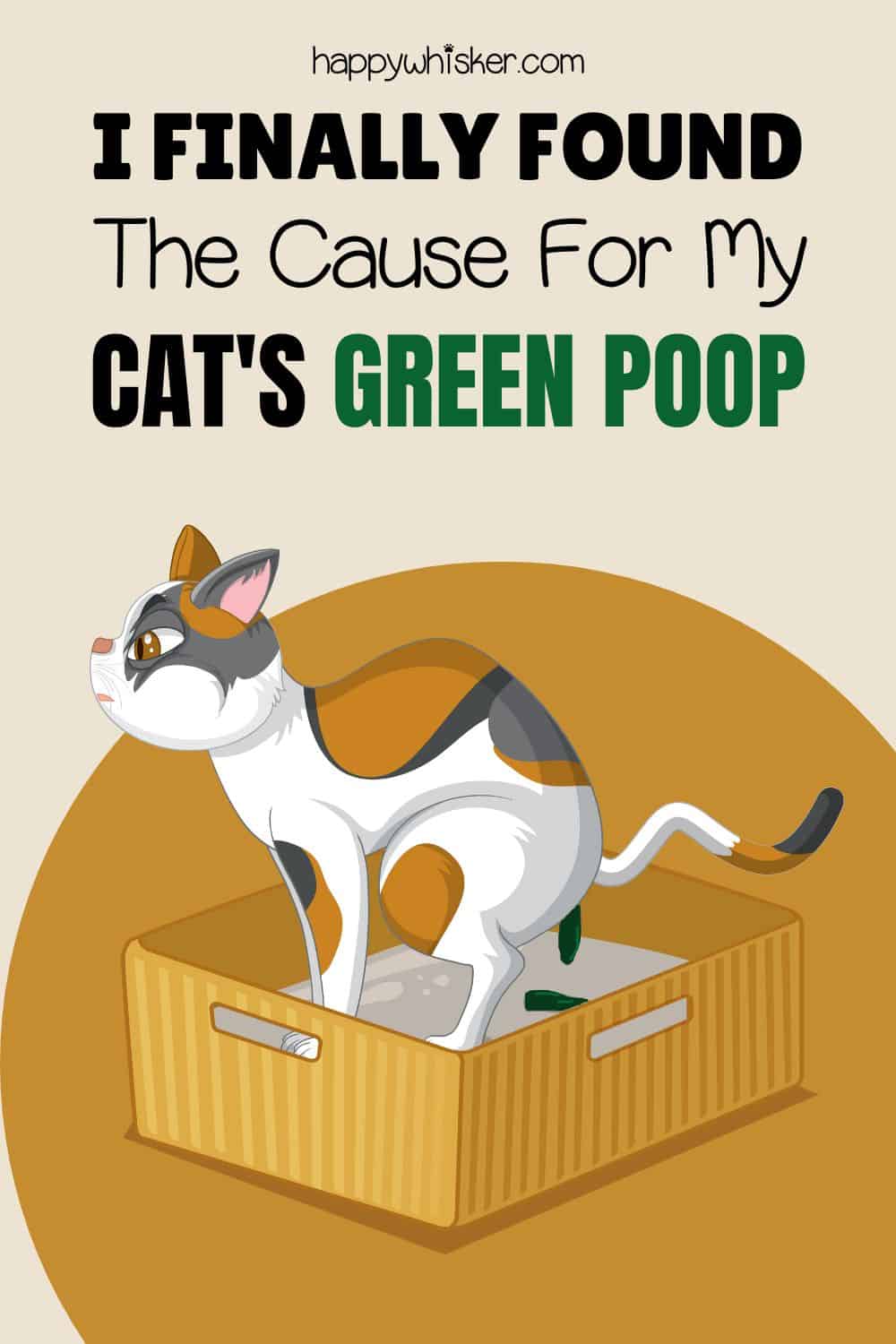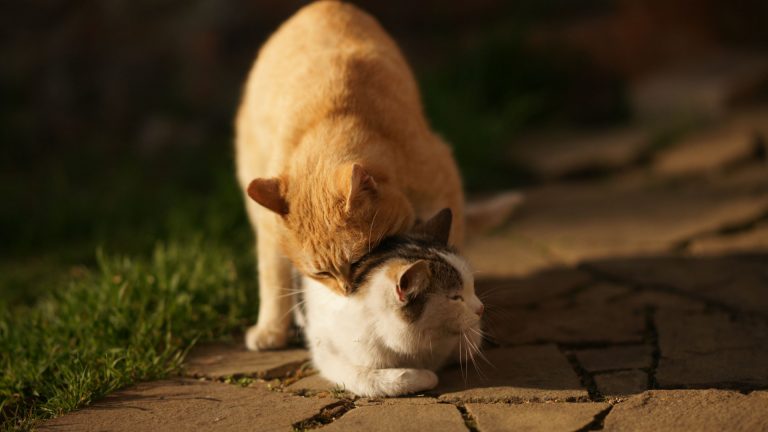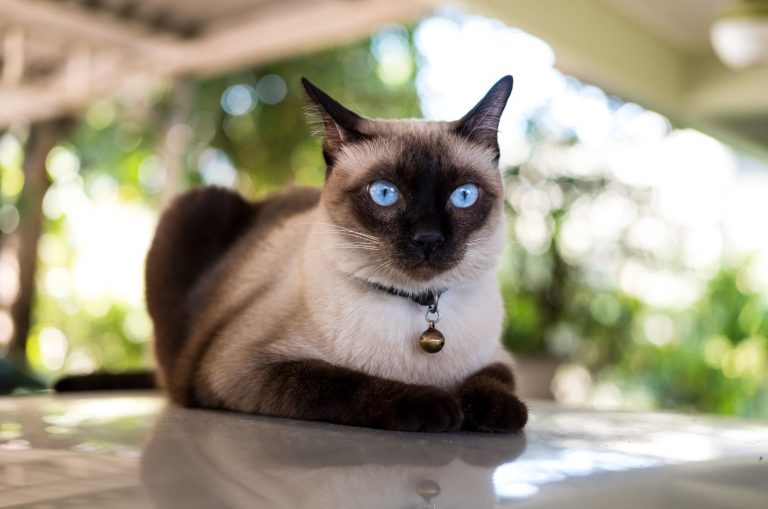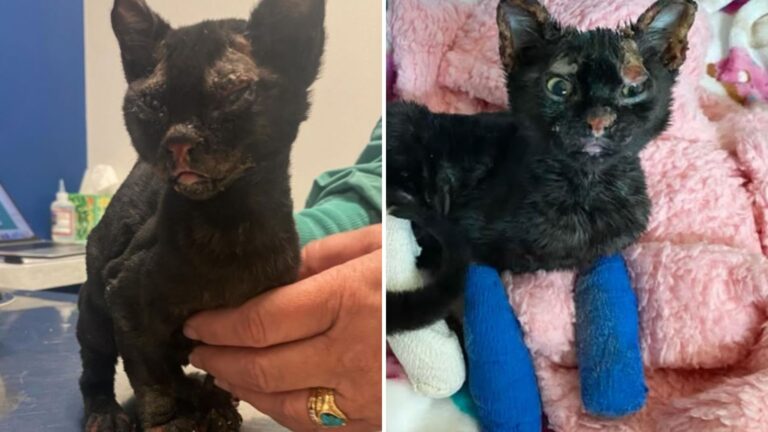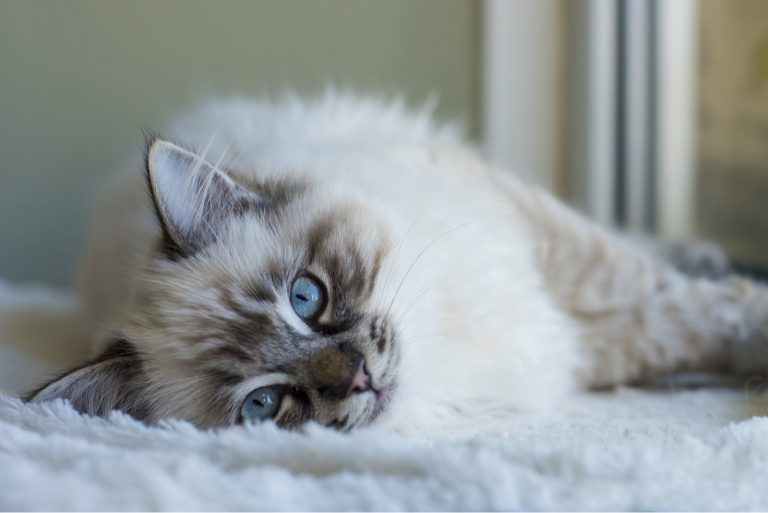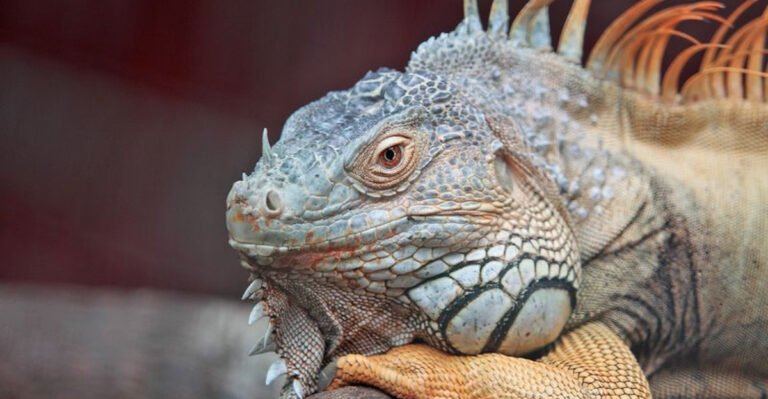Green Cat Poop – No Biggie Or A Cause For Concern?
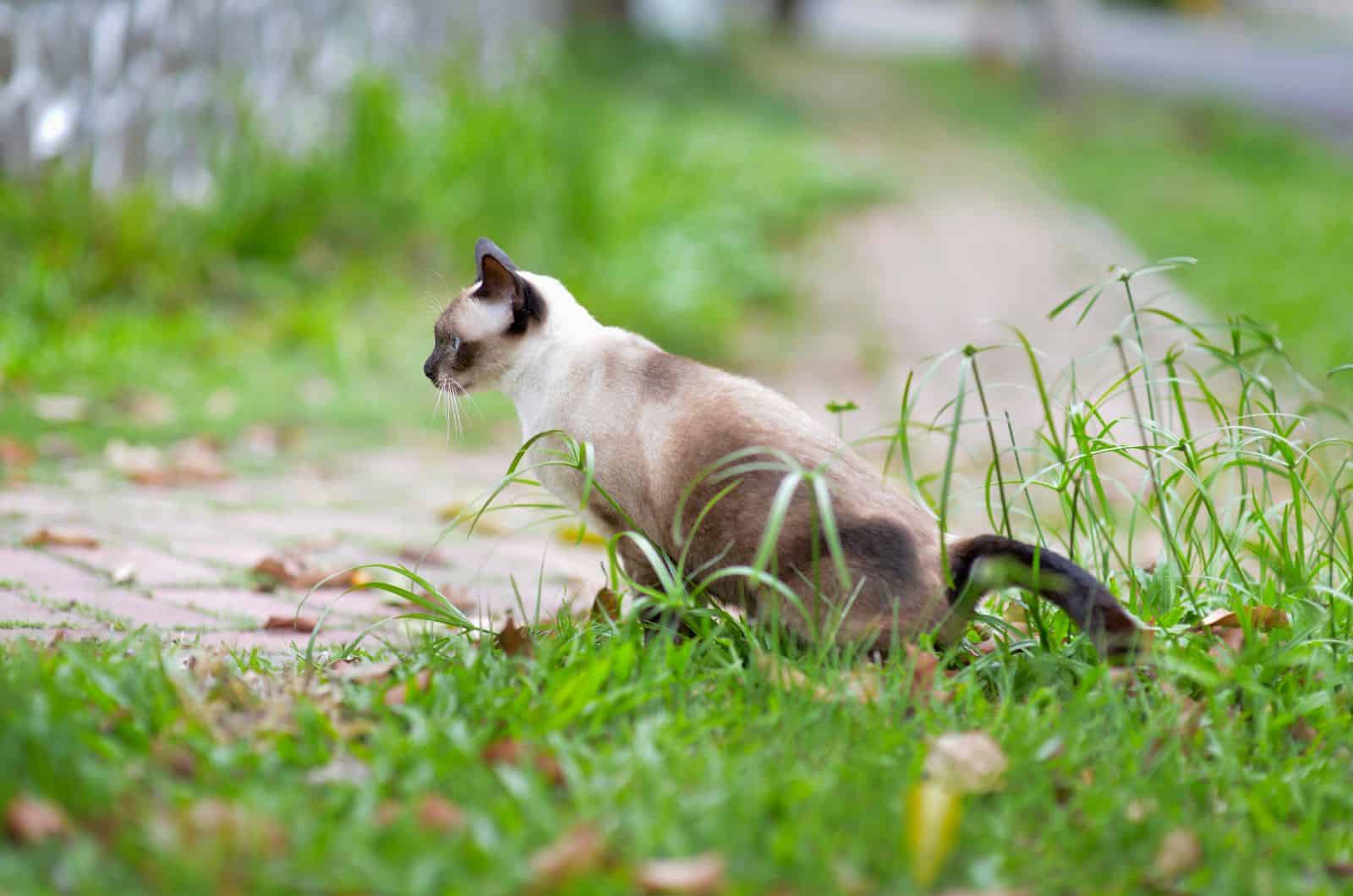
Cat poop – it’s not a pretty topic, but it is an important one.
It is important to know what a healthy cat stool looks like. As every cat owner has to deal with cat poop daily, it’s a good opportunity to get some insight into your pet’s health and make sure your kitty is doing well.
As you probably already know – green is not the usual cat poop color.
A healthy cat’s stool should be brown (but it can range from light to dark brown) and definitely not any other color.
However, not all causes of green cat poop are particularly alarming, as you’ll see. On the other hand, some causes of green cat poop do require a trip to the veterinarian.
If you’d like to learn what might be causing your cat’s green poop, and how to treat it – then continue reading!
Is Green Cat Poop Normal?
Although the color of your pet’s stools may vary significantly depending on their diet, normal cat stools are typically brown.
You probably won’t be surprised to learn that green cat poop is not normal!
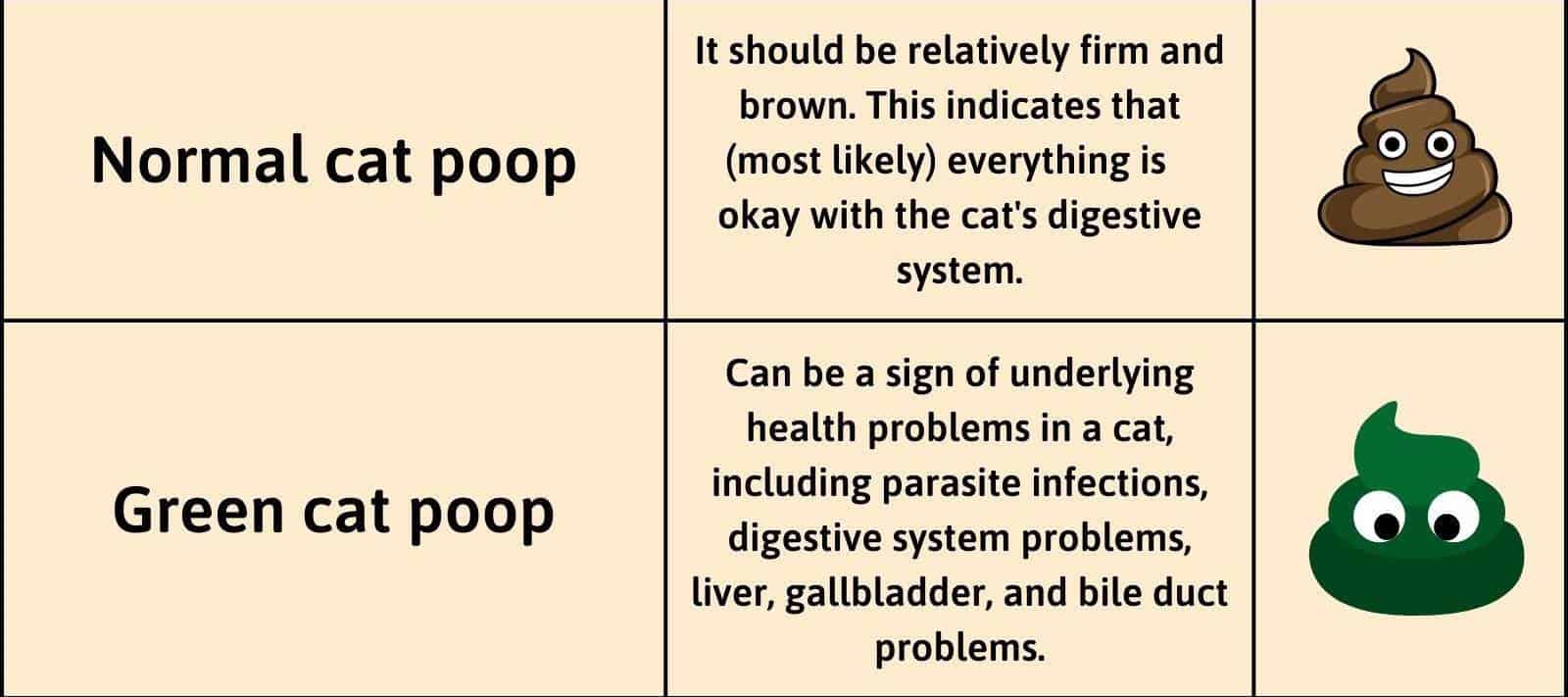
Abnormal stool color, texture, and smell can indicate that your cat is battling an underlying health issue, which it is important to address. Therefore, noticing changes in your cat’s stool is crucial to getting a proper diagnosis and treatment of any potential issue.
If you notice that your cat is passing green stools, you should take them to the vet in case it is a symptom of a serious health issue.
Why Is My Cat’s Poop Green? 6 Potential Reasons
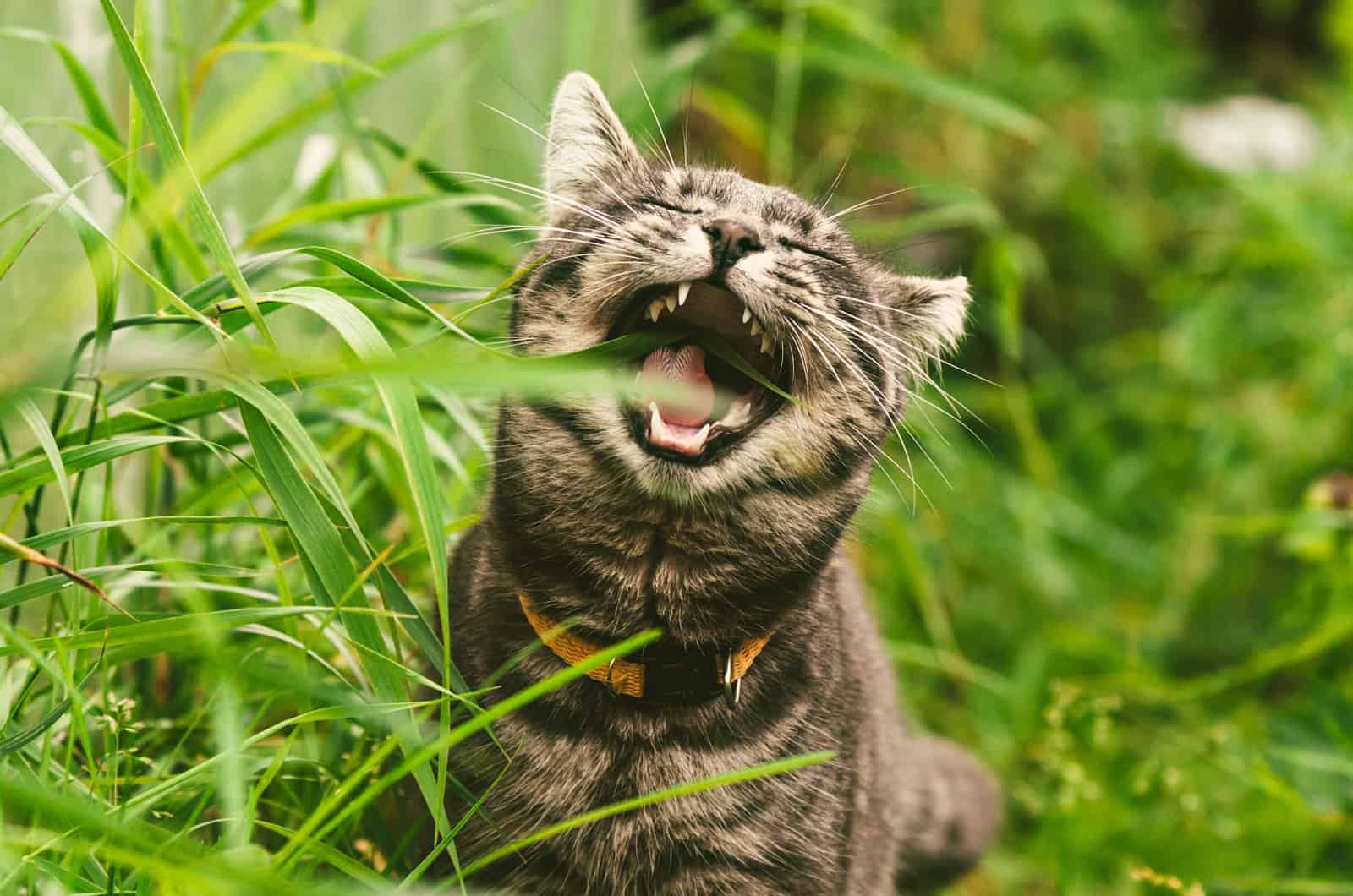
There is no one single cause of green cat stool, so let’s go over all the potential reasons why your kitty’s stool may be green!
#1 Eating A Lot Of Grass
I know this might come as a surprise to some, but cats do eat grass. It’s definitely not the major part of their diet (meat-derived protein takes that place), but most cats do eat grass.
Cats cannot digest grass as they lack the enzymes for breaking it down – and the consequence of this is the cat throwing up. Cats actually do this on purpose.
If a cat wants to get rid of hairballs or something they have eaten that they cannot digest, they will eat grass to make them throw up!
If your cat keeps throwing up but showing no other signs of an illness, it may be that they are actually throwing up on purpose!
Apart from throwing up, grass can help relieve constipation, calm down their nerves (the action of chewing can relieve anxiety for some cats) and it may be a source of vitamins and minerals.
If your cat is one of those cats that eat more grass than they need, you might observe their stool being green in color due to the presence of undigested grass!
If you know your cat is a grass-lover, and you don’t notice any noticeable changes in their behavior other than the green feces themselves – then it is likely that the reason your cat’s poop is green is down to eating a lot of grass.
#2 High Fiber Diet
Your cat’s diet will have a significant impact on how their excrement looks. When your cat’s poop color suddenly becomes green, it may be due to your cat consuming veggies containing a lot of chlorophyll.
If you’re wondering can cats eat spinach or can cats eat celery – you bet they can! And not only these, but many other green veggies too!
Not all cats are huge vegetable fans, but some are so if your little vegetable lover has eaten too many green veggies, their stool can go green!
The pigment that gives many different plants and foods their green hue is called chlorophyll. Many commonly consumed veggies like spinach, broccoli, collard greens, and asparagus contain it.
Plants with a high chlorophyll content will naturally turn your cat’s excrement a light shade of green without producing any other symptoms.
Cats on a high fiber diet frequently have feces with a very pale green to yellow tint. If the poop color change is not the only out-of-the-ordinary thing you notice and there are some other symptoms of a potential health issue, I suggest going to the vet.
Related: Can Cats Eat Lettuce? Is It Safe Or Not?
#3 Biliary System Issue
The liver produces and secretes a fluid called bile, which is stored in the gallbladder until needed. It is a thick, sticky fluid that aids digestion by breaking down fats.
Abnormalities of the organ that produces the bile (the liver), the organ that stores it (the gallbladder), or the structure that transports the bile (the bile duct), can cause green cat poop.
Apart from the obvious poop color change, green cat poop implies that your cat’s body is not correctly absorbing the nutrients from their diet, which increases the possibility that they will become underweight, malnourished or suffer from other health issues.
#4 Small Intestinal Diarrhea
Exocrine pancreatic insufficiency is a digestive tract issue that presents with symptoms such as large amounts of diarrhea which is greenish, yellowish or gray, as well as watery in consistency. It is also associated with weight loss and flatulence.
In young cats, immunocompromised cats, or those with viruses such as feline panleukopenia virus or feline coronavirus, this may induce an abrupt bout of small intestinal diarrhea. Salmonella, clostridia, or campylobacter are just a few examples of the bacteria that can cause this uncomfortable health issue.
Small intestinal diarrhea is also observed in cats with inflammatory bowel disease (IBD). However, it is not the most common symptom of this health issue. Weight loss due to appetite loss and chronic vomiting are more common signs.
#5 Coccidia, Giardia, or Salmonella Infection
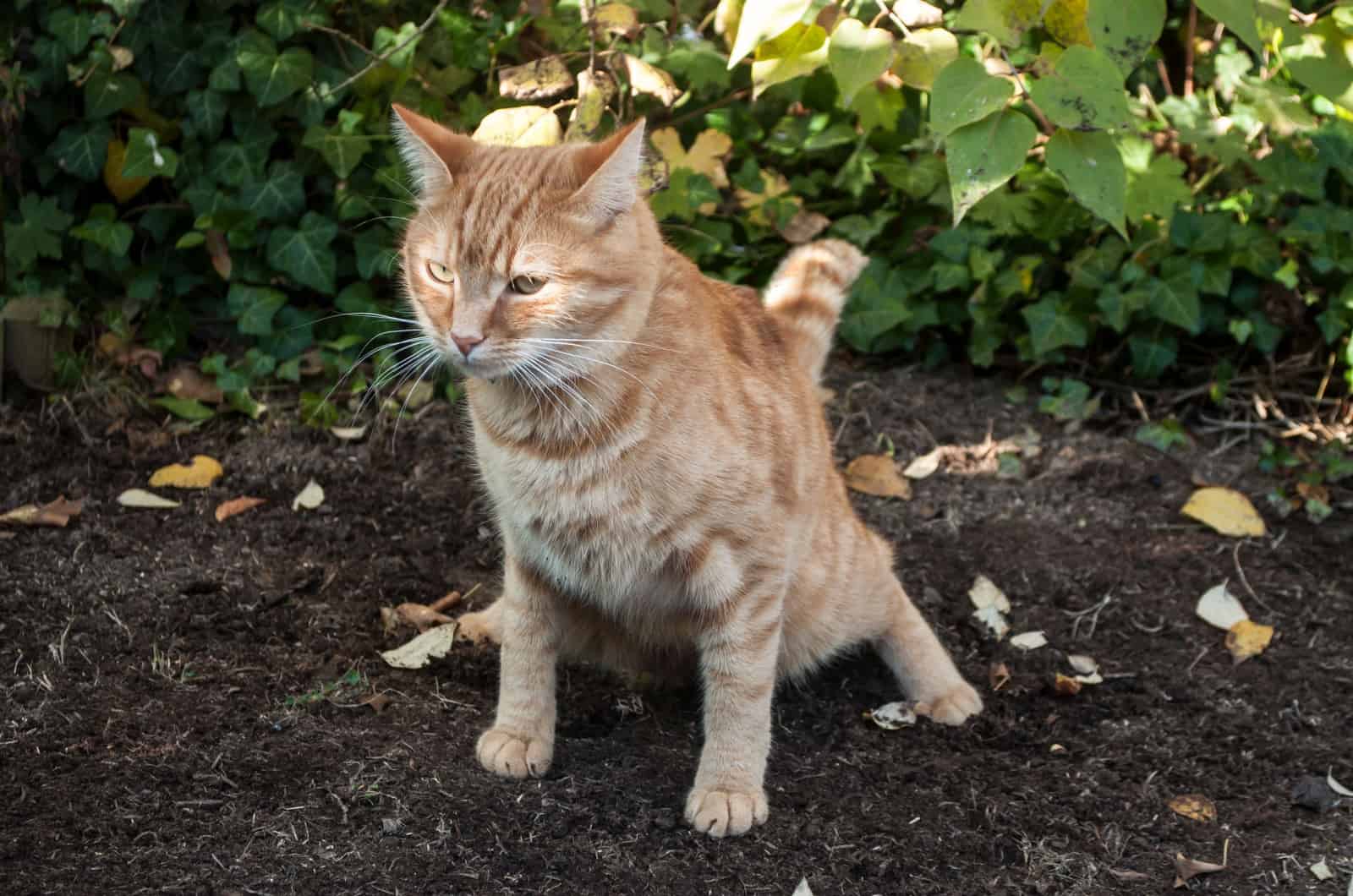
Other causes of green cat poop include parasites that infect a cat such as Coccidia (a protozoan), Giardia (a protozoan), and Salmonella (a bacterium).
Unfortunately, cats of every age and breed are susceptible to parasitic infections, and your cat is bound to encounter some of them at least once in their lifetime.
Coccidia Infection
An illness of the gastrointestinal system known as coccidiosis is brought on by the protozoan one-celled organism (coccidia). They are microscopic parasites that reside inside the intestinal lining cells.
Your cat likely contracted coccidia by ingesting oocysts present in cat feces or any excrement-contaminated environment.
Coccidiosis is a common diagnosis in kittens. An infected kitten is likely to experience severe watery or mucous diarrhea, dehydration, stomach discomfort, loss of appetite, and vomiting. The same goes for elderly cats, while healthy adult cats don’t typically show these symptoms.
Giardia Infection
Giardiasis is a tiny protozoan parasite that causes intestinal infections in cats. In healthy adult cats, this disease is relatively uncommon.
This occurs frequently in densely populated cat populations, such as in catteries, pet stores, and animal shelters, and is more frequent in kittens and elderly or disabled adult cats.
Damage caused by these tiny parasites attaching to the intestinal wall results in the following symptoms:
• Foul-smelling diarrhea
• Greasy stools
• Watery and loose stools
• Poop with a greenish tint
• Poop tinted with red blood
• Excess mucus in cat’s stool
• Weight loss
• Vomiting
Giardiasis can be spread by drinking contaminated water, eating or sniffing contaminants found in polluted soil, or both.
Salmonella Infection
Salmonellosis is caused by a Salmonella infection in cats. This bacterial infection can cause a variety of illnesses in cats.
Salmonellosis is spread to cats through contact with other diseased animals, whether they eat them or come into contact with their waste. Salmonella germs can also persist on surfaces, contaminating both uncooked and cooked food.
Symptoms of Salmonella infection are:
• Vomiting
• Diarrhea
• Fever
• Sudden lethargy
• Abdominal pain
• Dehydration
You might also notice your cat having green mucoid diarrhea.
The symptoms of a salmonella infection can be more severe in kittens, elderly cats, and cats with compromised immune systems.
Apart from these symptoms, this bacterial infection can cause other issues.Enteritis (or gastroenteritis) is an intestinal inflammation that can develop as a result of salmonellosis. This can result in septicemia, a systemic condition brought on by bacterial bloodstream contamination.
#6 Medication Side-Effects
Medications, including vitamins, antibiotics, and any type of drug, can alter the color and texture of your cat’s feces.
You should be aware that most synthetic pharmaceuticals have their fair share of side effects, whether we’re talking about antibiotics or any other kind of prescription medication or over-the-counter remedy or supplement.
The types of bacteria in the stomach may change as a result of antibiotic use. Since bacteria have an impact on the color of feces, a shift in bacteria may alter the hue of your cat’s stool.
Be sure to consult your veterinarian if you observe any medication side-effects, because many commonly prescribed medications have been known to color cat poop green.
You may also notice that your cat’s normal brown stool temporarily changes to green after having a dewormer.
Although drugs turning your cat’s poop green is just a side-effect, it’s best to check with your vet that your cat’s health is in order.
Why Is My Kitten’s Poop Green?
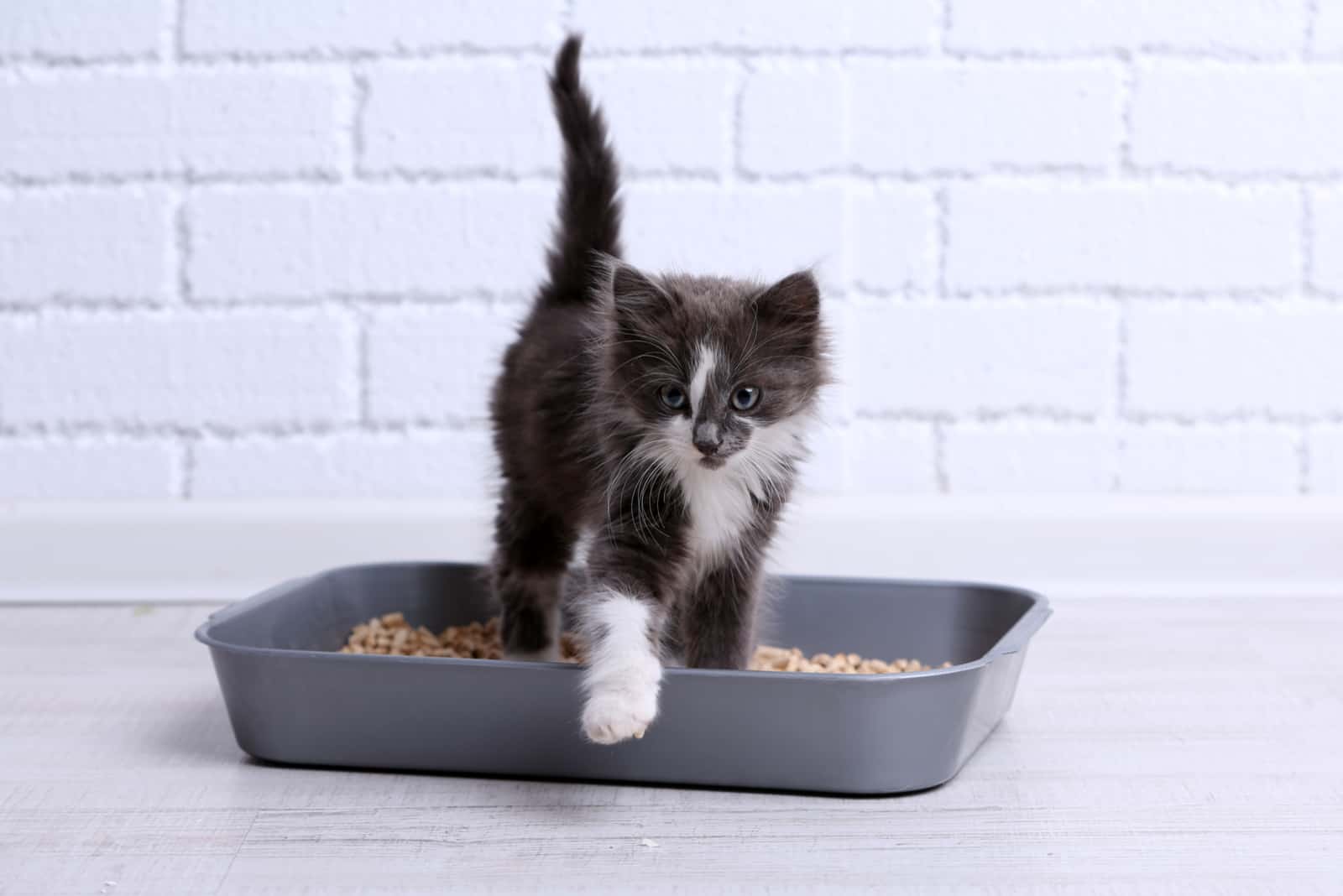
A kitten’s poop can also be green, just as in adult cats.
This is most likely to be due to sudden changes in the kitten’s diet (for example suddenly switching to adult cat food or a high fiber diet).
It can also be due to issues with the liver, gallbladder, or bile duct; or due to a parasitic infection of the gastrointestinal tract.
Normal cat (or kitten) poop is brown (as you already know), so if your kitten’s stool does not go back to its regular color in a few days, I highly recommend visiting the vet, just to ensure your kitten is not dealing with some serious health issues.
Why Is My Cat’s Poop Green And Slimy?
If your cat’s excrement is green and contains a small amount of mucus and your cat is not displaying any signs of illness, you probably have nothing to worry about.
Intestinal mucus, a natural fluid, aids in lubricating and moisturizing the linings of the intestines and speeds up fecal transit. Small amounts of mucus in your kitty’s poo are nothing to be worried about.
However, when your cat’s bowel movements are accompanied by a lot of slimy pale yellow-green liquid, this is unusual. Mucus-covered or oily stools or feces may indicate a medical issue your cat might be suffering from.
Large intestine inflammation, constipation, food sensitivities, dietary modifications, parasite infections, and even tumors can cause mucus to develop.
Green poop and excess amounts of mucus are not normal, so I highly suggest visiting the vet to get to the bottom of any potential health issue causing this combination of symptoms.
Why Is My Cat’s Poop Green And Smelly?
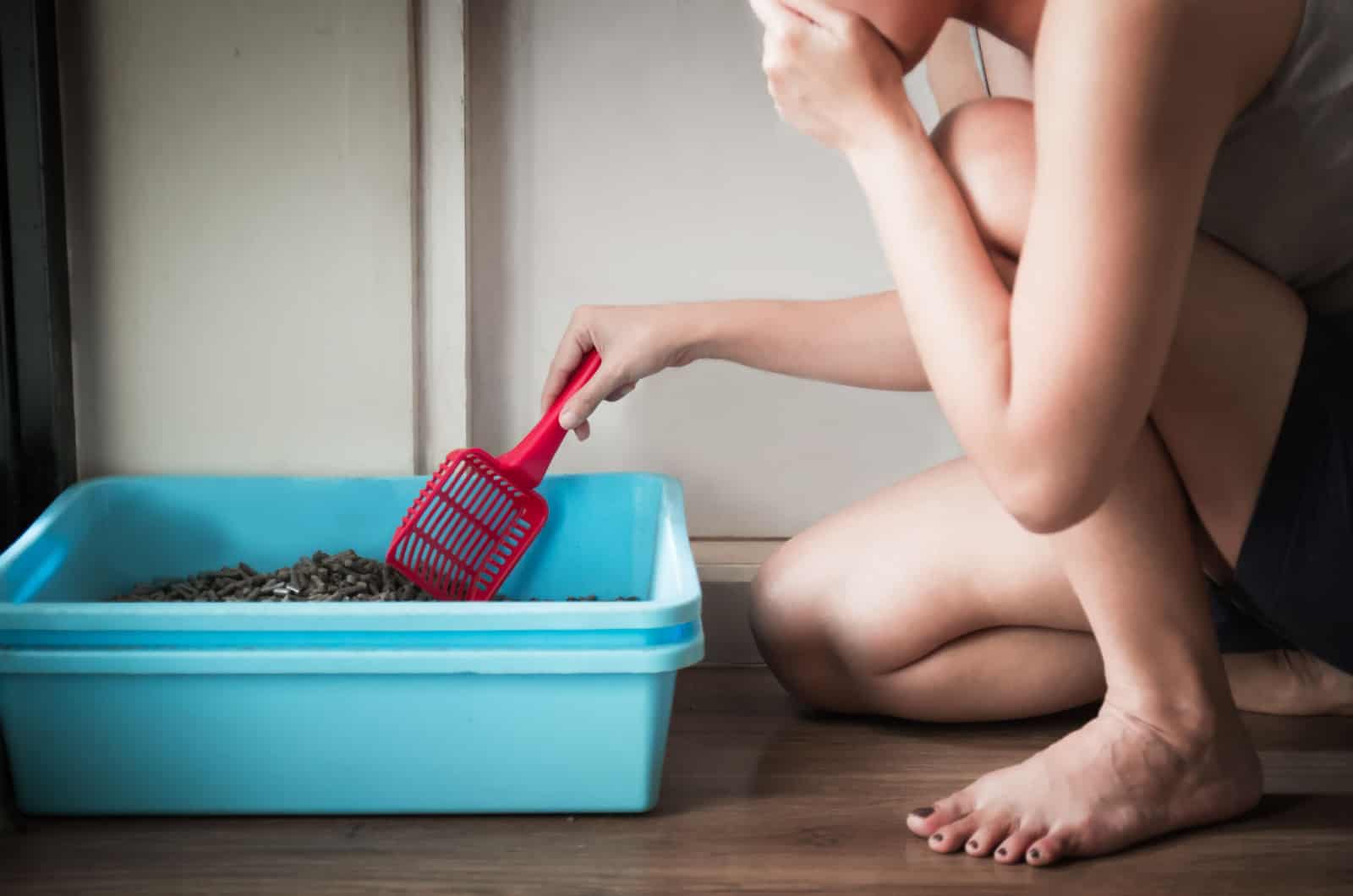
Apart from the fact that cat poop should not be green, we also know that cat’s poop should not be extremely smelly. Of course, healthy cat poop doesn’t smell like flowers and does have some unpleasant smell to it, but it definitely should not be unbearable.
If your cat’s poop is really smelly, this can point to an anal gland infection, food allergy, internal parasitic infection, or even liver or pancreatic disease.
Cat poop green and smelly? This is a big red flag and you definitely need to go to the vet. It could mean your kitty is battling more than one underlying health issue.
Related: Why Does My Cat’s Poop Smell So Bad? Causes And Solutions
Why Is My Cat’s Poop Green And Watery?
Green diarrhea in cats is something no owner wishes to see! Apart from being gross, it can be quite concerning, as neither the color nor the texture of the cat’s poop is as it should be.
If you notice your cat pooping on the floor randomly, it could simply be that your kitty did not have enough time to get to the litter box!
If you notice your cat’s litter box contains watery, green poop, that might be a sign that your cat has a bacterial, viral, or protozoan infection. Intestinal worms are also potential causes of your cat’s diarrhea.
Green poop in cats that is also very loose and watery is a sign something is wrong with your cat’s health and you should take them to the vet as soon as you can.
What Should I Do About My Cat’s Green Poop?
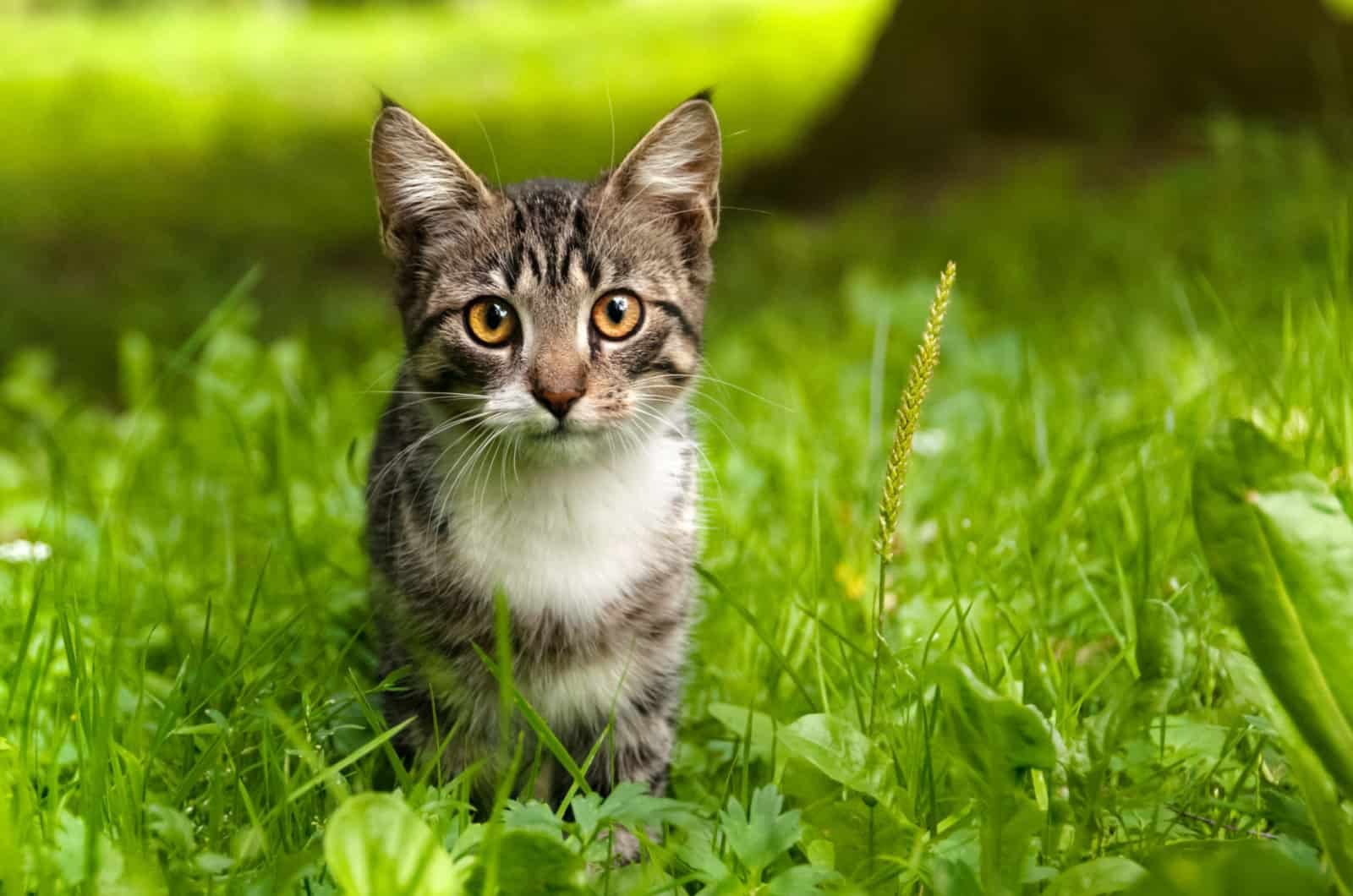
If you notice your cat’s poop is green, this is what you need to do:
🐾 Try finding the potential cause of your cat’s green poop – has your cat been eating grass recently? Have you switched your cat’s diet to a high-fiber diet recently?
🐾 Keep an eye on your cat – are they displaying any other symptoms of a potential health issue?
🐾 If you notice your cat showing some other signs of a potential health problem, monitor them and write all of them down.
🐾 If your cat’s green poop persists after a few days, and your cat is starting to show other symptoms (such as vomiting, diarrhea, fever, etc.) you should go to the vet.
🐾 Tell your vet all symptoms your cat is showing, as well as when they first appeared.
Sometimes, green cat poop is nothing to worry about, but if the cat’s stool does not return to its normal color after a few days, or there are any other symptoms of an underlying health issue, go to the vet ASAP.
Treating The Causes Of Green Cat Poop
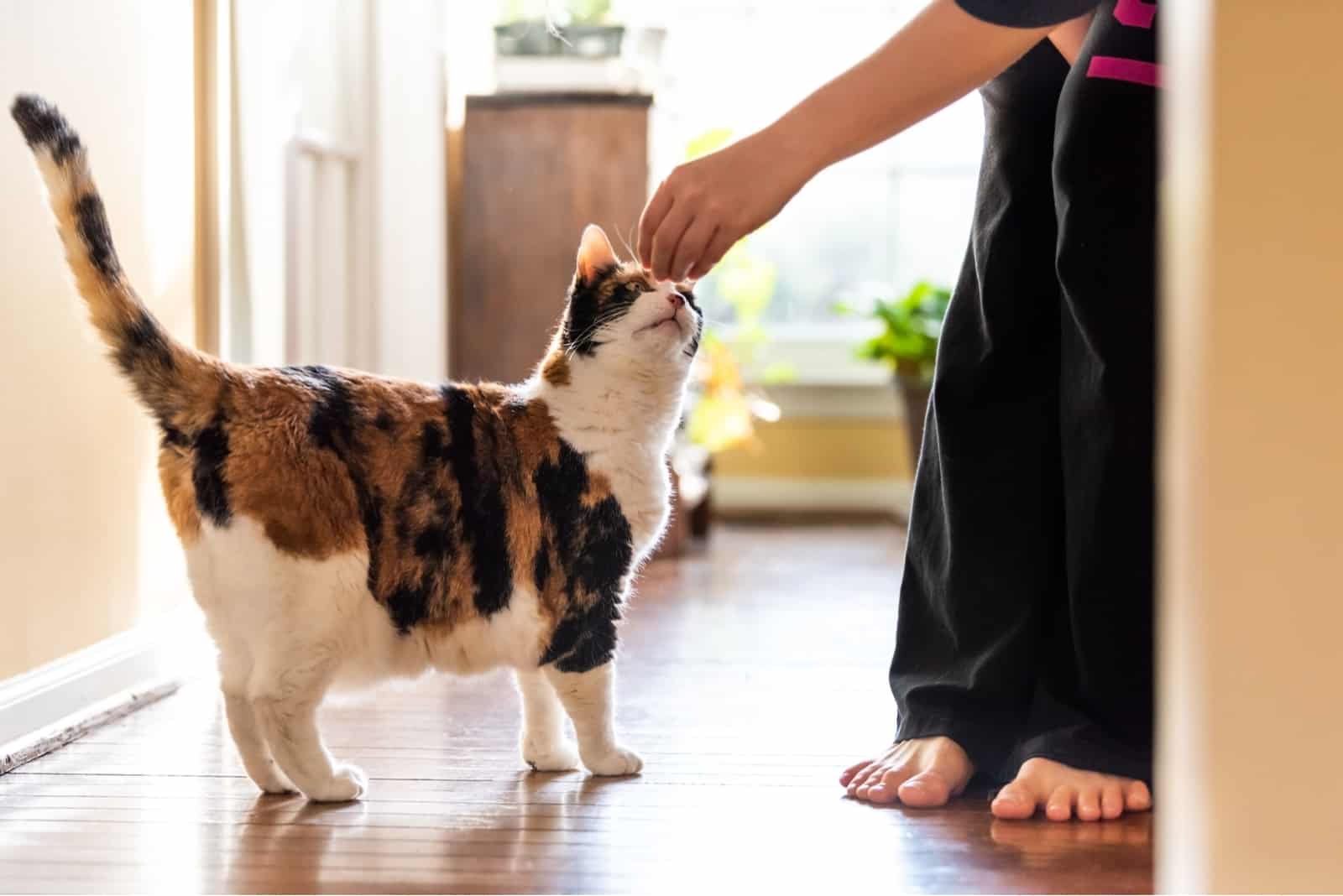
My cat’s poop is green! What treatment options can I expect? Treatment options will depend on what’s causing the green cat poop.
#1 If The Cause Of Green Cat Poop Is Eating A Lot Of Grass..
If you conclude that the cat poop is green due to your kitty eating a lot of grass, you’re lucky – this requires no treatment. Grass is even healthy for cats so you have nothing to worry about.
However, eating too much grass is an issue, especially if grass is a large part of the cat’s diet. In that case, your cat might have certain dietary deficiencies that might need to be resolved with dietary supplements and providing the cat with other food options.
#2 If The Cause Of Green Cat Poop Is High Fiber Diet..
Your cat needs no treatment if the cause of their green poop is a high fiber diet. Veggies are indeed healthy for the cat’s digestive system and overall health.
Nevertheless, veggies should not be the main part of a cat’s diet – that should always be meat.
#3 Treatment Of Biliary System Issues
The treatment of biliary system issues is largely dependent on which of the organs of the system are affected – is it liver, gallbladder, or bile ducts? Of course, treatment of liver disease is different from treatment of gallbladder disease.
There is also a wide range of issues that can affect each of these organs, therefore, treatment of biliary system issues is outside the scope of this article.
However, I highly recommend talking to your veterinarian about it, as they will explain everything you need to know and give you a specific diagnosis and treatment plan that will help your cat.
#4 Treatment Of Small Intestinal Diarrhea
When it comes to treating small intestine diarrhea, the vet will suggest withholding food for 24 to 48 hours. This is a common way to treat acute small intestinal diarrhea. Of course, you should continue giving your cat water.
When the diarrhea stops, feed your pet bland, low-fat food in tiny amounts three to six times per day for a few days before gradually increasing the amount and switching back to its regular diet.
You shouldn’t give diarrhea drugs available over the counter without first consulting a veterinarian.
Take your pet to the clinic if diarrhea lasts longer than a few days, or if it is accompanied by other symptoms.
#5 Treatment Of Coccidia, Giardia or Salmonella Infection
Coccidia
Cats who have coccidia are usually treated with an oral antibiotic drug. Antimicrobial therapy is frequently paired with drugs to reduce symptoms, such as probiotics, anti-nausea drugs, and fluid therapy, depending on the severity of the cat’s disease.
Giardia
Giardia is treated with medication. This is usually given in tablet form and administered orally for five to seven days.
The drugs used to treat this infection are usually quite bitter, so giving them to the cat is not the easiest job in the world! However, some manufacturers do produce coated tablets that prevent the cat from tasting the bitterness.
Salmonella
Salmonella infections may need to be treated right away with fluids. This is because infected cats often vomit a lot, as well as having diarrhea, which leads to fluid loss and dehydration.
Rehydrating the cat, helping it to recover from significant fluid and weight loss, and replenishing lost electrolytes are all useful treatments.
Antibiotic treatment of Salmonella is essential. In extreme situations, hospitalization in a veterinary clinic might be needed, however this is rare.
#6 Treating Medication Side-Effects
If your cat is experiencing medication side-effects, you need to consult your veterinarian. They know your cat’s medical history, they understand the exact diagnosis of the health issue that’s being treated, as well as which drugs your cat is taking.
Note every potential side-effect, as well as the green poop (if any are present) and explain them to your vet. They will tell you exactly what to do, whether to continue giving your pet the drug or not, and whether you should switch your cat to another medicine.
Preventing The Causes Of Green Cat Poop
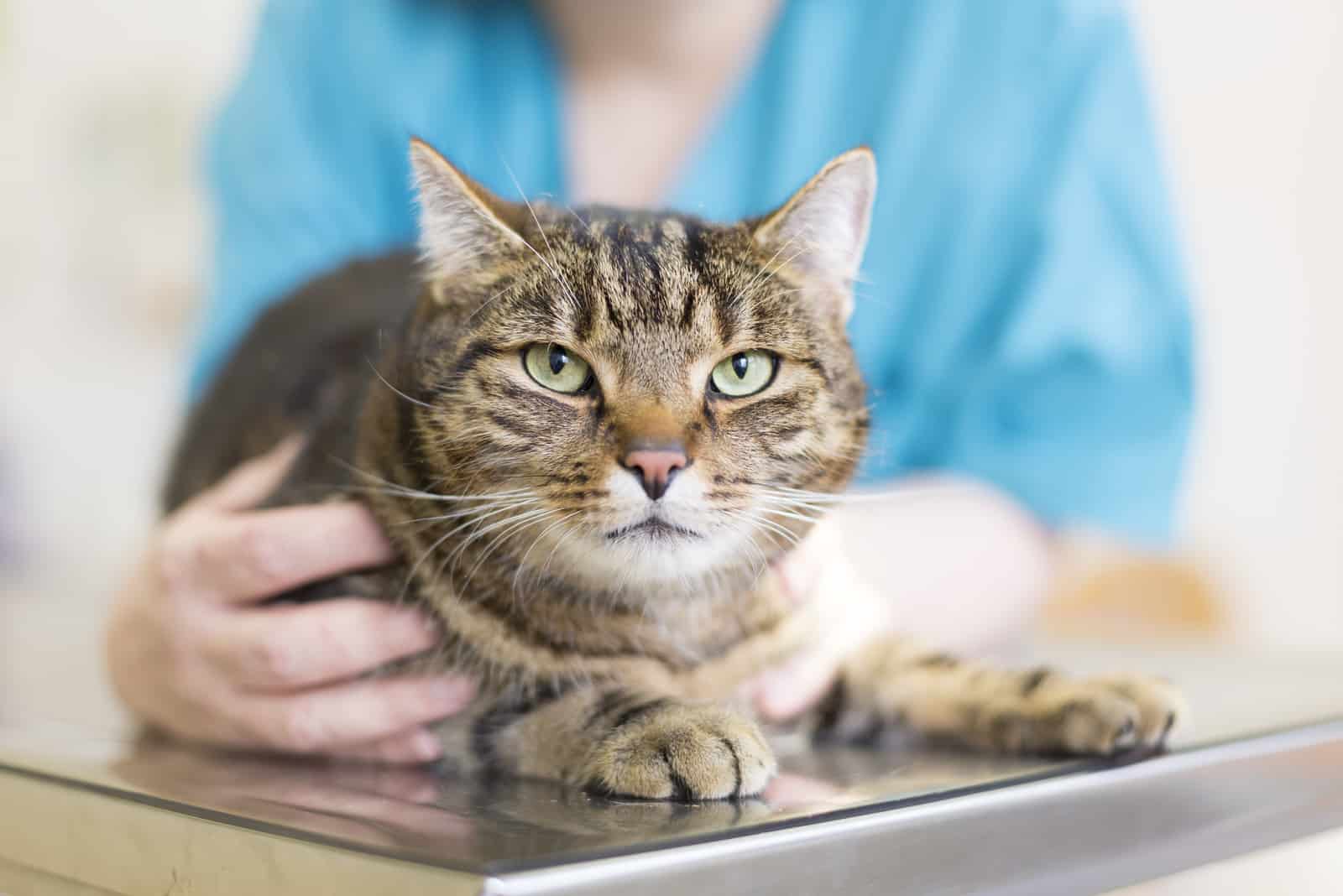
If your cat has had green poop due to an underlying health issue, I’m sure you want to know how to prevent it from happening again. So, let’s find out how to prevent the causes of green cat poop from recurring.
#1 Preventing Your Cat From Eating A Lot Of Grass
Although eating grass is not harmful to cats (it’s actually quite healthy for them), eating too much grass is not good. If your cat’s diet is mostly composed of grass, that will lead to many health issues. If your cat is eating non-food items such as litter or paper, then that’s a sign of PICA disorder.
If you want to prevent your cat from eating too much grass, you simply restrict your kitty’s access to grass. Prevent them from going outside as much, and make sure they eat enough normal cat food.
#2 High Fiber Diet – When Is It Too Much?
A cat’s diet should not be composed mainly of green vegetables (such as spinach).
Remember that cats are obligate carnivores. Every cat needs their meat-derived proteins. A healthy cat’s diet is supposed to be composed mostly of proteins, then of small amounts of fats and very few carbohydrates.
Try giving your cat high quality store-bought cat food, as it contains the perfect ratio of proteins, fats, and carbs. You can also find out about how to feed your cat homemade cat food as well.
#3 Preventing Biliary System Issues
There really isn’t a lot that you as a pet owner can do to prevent your cat from developing issues with their liver, gallbladder, and bile duct.
The only way to maintain your kitty’s overall health is by providing them with a healthy diet, making sure they have enough physical exercise, and seeking veterinary attention as soon as it is needed.
#4 Preventing Small Intestinal Diarrhea
Considering the causes of small intestinal diarrhea are usually viruses and bacteria, you need to:
• Make sure your cat is vaccinated
• Make sure your cat’s environment is clean
• Make sure your cat has a healthy diet
Although you can never prevent diarrhea from occurring, by doing these things, you can lower your kitty’s risk of having small intestinal diarrhea.
#5 Preventing Coccidia, Giardia, or Salmonella Infection
Coccidia
Routinely cleaning the cat’s environment and removing waste from the litter box on a daily basis is the best way to prevent a coccidia infection.
At least once each day, feces should be removed from litter boxes; the faster they are disposed of, the lower the chance of transmission. This is particularly crucial in facilities like kennels and shelters.
Giardia
Preventing environmental fecal contamination is essential to preventing infection with giardia.
Essentially, you need to be careful about where your cat is walking around. If you allow your cat to wander outside of your home, make sure to bathe them frequently, as that will eliminate potentially cyst-containing fecal material from the fur.
It’s also advisable to clean the cattery or house thoroughly, including crates, litter boxes, and bedding.
Salmonella
Salmonella is sometimes found in raw meat so eating meat containing this bacterium is the main cause of infection. Therefore, giving your cat raw or undercooked meat should be avoided since it increases the risk of salmonellosis.
#6 Preventing Medication Side-Effects From Arising
Most of the time, you cannot really know which side-effects your pet will experience after starting to take a specific drug. There is one thing you should do – inform your vet about all the drugs your cat is taking, as well as your cat’s entire medical history.
By informing your vet about these things, they can assess whether to expect a certain side-effect from arising. However, you cannot know for sure which medication side-effects your cat will experience.
How Is My Cat’s Poop Supposed To Look?
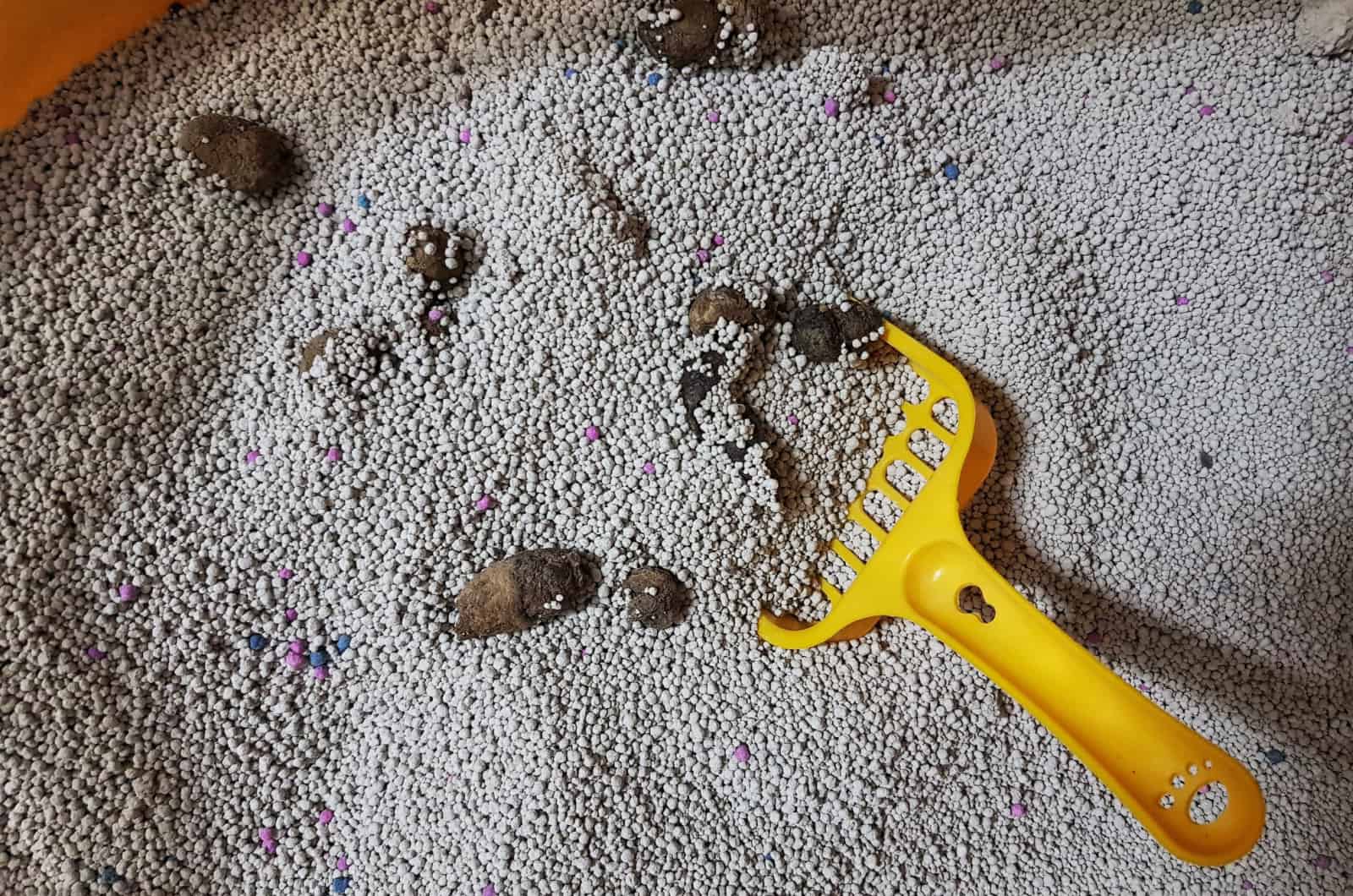
How should cat poop look? This may be a question that seems trivial, but it is extremely important.
A healthy cat’s poop should have the following characteristics:
🐾 Dark brown color
🐾 Firm
🐾 Only a mild smell
If your cat doesn’t have “normal cat poop” but rather stool that has an unusual color (such as orange cat stool), unusual texture (for example cat’s poop being half firm and half soft) or a strong smell to it (smelling terrible) – this can indicate a potential health issue.
A cat’s stool being white can be a sign of intestinal worms (such as roundworms) or other intestinal parasites.
Gallbladder, liver, and pancreas issues can present themselves in the form of yellow-colored cat poop, so definitely be on a look out for this as well.
Essentially, any color of stool apart from brown is definitely out of the ordinary and might need a veterinary consultation.
In Conclusion
A healthy cat’s stool is brown so any other color apart from brown indicates a potential health problem your cat may be battling with.
Therefore, although you don’t need to panic, you should invest some time in finding out why your cat’s poop is abnormal.
Potential causes of green cat poop are:
🐾 Eating a lot of grass
🐾 High fiber diet
🐾 Biliary system issue
🐾 Small intestinal diarrhea
🐾 Coccidia, giardia, or salmonella infection
🐾 Medication side-effect
Luckily, all of the mentioned causes of abnormally colored stool can be treated.
Visit your local veterinarian as they will be able to get to the bottom of any potential health issue that’s causing green cat poop.
And there you have it – everything there is to know about green cat poop. I hope this article was informative and do not worry – I’m sure your kitty will be perfectly healthy in no time!
Like this post? share or pin it for later!
